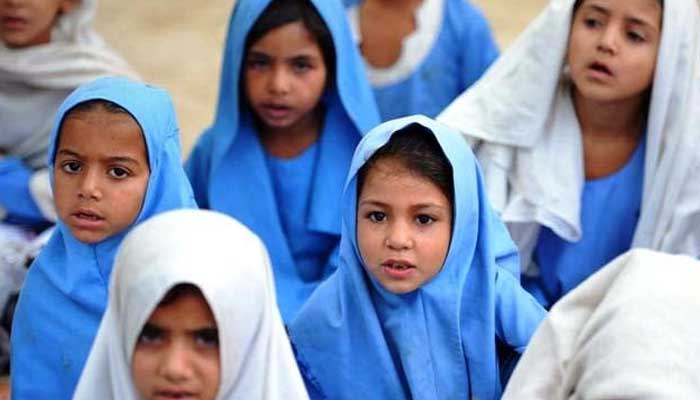32% children in Pakistan still out of school
Federal education ministry's workshop used strategic ‘design thinking’ to create pathways to mainstream out-of-school children
KARACHI: Ministry of Education and Professional Training Tuesday held a national workshop on creating pathways to mainstream out-of-school children in collaboration with the World Bank and Global Partnership for Education.
The workshop used strategic "design thinking" to create pathways to mainstream out-of-school children to equip them with the ability to access their constitutional right to free, quality education. The focus of the workshop was the most vulnerable groups within the out-of-school population.
During the workshop, speakers shared that despite gains in recent years, 32% children — about 20 million girls and boys — in Pakistan are still out of school.
The challenges for groups within the out-of-school children (OOSC) population vary — some are attending non-formal literacy programs, while others are closer to graduating out of the school-going age bracket (5-16 years). They added that the challenges in terms of access, rural and urban geography, gender, socioeconomic means, etc. differ, as well.
Waseem Ajmal, additional secretary at the ministry, opened the session and said that the composition of people at the workshop was very capable of creating an action plan to solve this complex challenge.
He also reiterated the ministry’s resolve to ensure that the constitutional commitment to all children in Pakistan is fulfilled.
Dr Suleman Shahid, assistant professor at the Lahore University of Management Sciences (LUMS), facilitated the workshop for a high-level audience of education secretaries, additional secretaries, managing directors of education foundations and development partners from all regions and provinces of Pakistan.
The workshop identified critical themes central to OOSC in Pakistan within the wider socioeconomic context. These themes included rural and urban disparities, limited access to higher secondary schools, economic distress due to floods and COVID-19, and familial responsibilities.
Solutions proposed included community-based solutions to address the various challenges to mainstreaming out-of-school children. The need for solutions to be multifaceted emerged. For example, non-formal education centers will only be accessible to more OOSC if they also have childcare facilities, so that elder siblings — who remain out of school to take care of their younger siblings — can also access them.
Similarly, solutions offered for a child who dropped out and the for a child who has never been to school will differ. Overall, solutions will need to be flexible and agile to cater to disadvantaged groups even within the OOSC population.
The COVID-19 pandemic exacerbated Pakistan’s education challenges with prolonged school closures and extremely limited access to technology as well as economic distress for the most vulnerable segments of the population.
This workshop was part of the Global Partnership for Education, MoFEPT, and the World Bank’s efforts in the COVID-19 Response, Recovery, and Resilience in Education Project (RRREP).
-
Security forces gun down 30 terrorists in multiple IBOs in KP: ISPR
-
MQM-P calls for new province in Sindh
-
US report validates Pakistan military edge over India: PM
-
Banned TTP poses serious threat to Pakistan security: UNSC panel
-
CM Afridi clarifies remarks on by-poll after ECP requests army deployment
-
Dubai sees 3.2m Pakistani passengers in 2025 as airport sets new milestone
-
Security forces kill 23 Indian proxy terrorists in KP's Kurram
-
Pakistan to construct island to boost oil exploration: report












